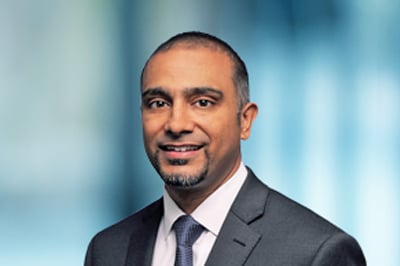Franklin Templeton VP says many advisors don’t have the time or skill to manage ETF selection amid interest rate uncertainty

If irony is a city planner getting stuck in traffic, then the wealth management profession may have its ow equivalent.
Advisors having to actively manage their passive fixed income ETF mix is a twist on the original carefree “set-it-and-forget-it” ethos that helped propel the overall growth of the ETF industry.
But times have changed, according to Ahmed Farooq, vice president, ETF business development at Franklin Templeton Canada, who believes that approach worked for about six years in the fixed income space before the Bank of Canada and the US Federal Reserve started raising rates.
Now buying government, high yield and corporate ETFs you could previously leave alone and trust requires more work.
Farooq told WP: “There’s two paths, one from the Fed and one from [Governor Stephen] Poloz but they are kind of linear and, all of a sudden, that safe haven part of your portfolio is giving you a headache and it’s providing negative performance or it’s taking up too much of an advisor’s time to manage.”
He added that passive-leaning investors started going back to mutual funds because they didn’t have the time to grow their practice and be an ETF asset manager at the same time. The advisor, said Farooq, now wants a PM who can look at this on a daily basis and react to factors like changing rate policy. Passive has, in effect, become active.
Farooq said: “That’s the point. It’s not that passive is broken. It’s that if I am the advisor, I now have to make calls in my portfolio. If you have bought a lot of short bonds in the past two years because rates were going up, now all of a sudden, rates are not rising and passive will do a great job.
“But if you want to get to a certain point [for your client], you have to figure out how to get there and you have to make that active call in the portfolio. You are now active in your passive decision-making.”
The plethora of choice in fixed income has resulted in people going further into debt quality to get yield in the past two years, only for risk to eventually catch up with them. Investors can now pick from anywhere in the yield curve or the credit stream.
Farooq said: “If I am giving you 5% and the duration is two months, then the correlations are going to break. No one was buying the boring government stuff because it was not giving you anything but when you needed it in the last two months of last year, it worked!
“That’s why we saw people going from these traditional unconstrained bond funds to these higher quality funds because, at the end of the day, they are open to giving this up, as long as I keep my money and have some stability in that part of the portfolio.”
With a typical passive index-tracking ETF weighted naturally towards certain geographies, that is another area advisors also want more control over. Farooq, in a presentation at the 2019 Toronto Exchange Traded Forum yesterday, highlighted a typical passive weighting that included the likes of US, Japan, Germany and UK – but said that such an approach may not always pay off in today’s fast-changing world.
He said: “Passive is not doing a bad job, it’s doing what it’s supposed to be doing. But do you want to be benchmarked to Japan right now where you’ve got -0 interest rates and the economy is quite weak or do you want an active manager to switch that somewhere else?”
Franklin Templeton charge the same for its active fixed income ETFs as many passive ETFs, a result of having the infrastructure and resources of managing CAD$356 billion globally in the space, according to Farooq, who added: “The reason we are doing it now is that you are going to see prices fall and we don’t want to be in a position where we are cutting every two years to match our competition. We are going to price our products at the same price as passive … but the reason why passive is so expensive right now is because they’ve had no competition.”
Convincing advisors this is a viable way to go has so far been relatively easy because of the time management pressures they are under and the constant demands to provide tangible value to clients.
Farooq said active over passive in the fixed income ETF space is a no-brainer for many because, by outsourcing, it gives the advisors back their time, along with high yield to maturity while maintaining credit quality.
He said: “Advisors have to manage their book, grow their practice and hunt for clients because it’s a money-making business. How much time can they allocate to their portfolio? If they like Franklin Templeton, or whoever the manager is, and they are comfortable with them and the pricing is right, then they’re good.”
But what about the age-old argument that few active managers can actually beat the benchmark? Farooq said his approach is not about the benchmark but about outcomes and satisfying clients’ goals.



